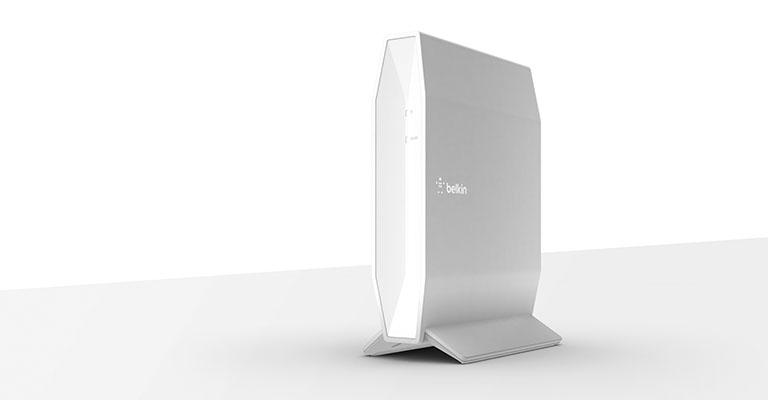In recent times, the concept of integrated appliances has emerged as a revolutionary force in modern home design. From smart refrigerators that sync with your smartphone to washing machines that communicate with your home's solar panel system for optimal energy usage, integrated appliances represent far more than mere convenience—they embody a fundamental shift toward intelligent, interconnected living spaces that adapt to our needs rather than demanding we adapt to theirs.
The integration of household appliances represents one of the most significant advances in domestic technology since the introduction of electricity itself. Unlike traditional standalone appliances that operate in isolation, integrated systems create a harmonious ecosystem where each device contributes to an overarching network of efficiency, sustainability, and user experience. This transformation has redefined what it means to live in a truly modern home, where technology works invisibly in the background to enhance comfort, reduce waste, and simplify the complexities of contemporary life.
Redefining Space and Aesthetics
The visual impact of integrated appliances cannot be overstated in contemporary home design. Traditional kitchens often resembled appliance showrooms, with each device proudly displaying its brand logo and competing for visual attention. Integrated appliances eliminate this visual chaos by seamlessly blending into cabinetry and architectural elements, creating clean, uninterrupted lines that allow the home's design personality to shine through without technological distraction.
This aesthetic revolution extends far beyond mere appearance. When appliances integrate seamlessly into their surroundings, they fundamentally alter how we perceive and use our living spaces. Kitchens become more spacious and inviting when dishwashers disappear behind matching cabinet fronts, and living rooms maintain their sophisticated ambiance when entertainment systems integrate invisibly into wall units. The psychological effect of this visual harmony creates environments that feel more spacious, organised, and peaceful.
The space-saving benefits of integrated appliances extend beyond visual appeal to deliver tangible improvements in functionality. Combination units that merge multiple functions into single devices maximise utility while minimising footprint. Modern integrated ovens that combine convection cooking, microwave functionality, and steam cooking capabilities can replace three separate appliances while occupying the space of one. This efficiency proves particularly valuable in urban environments where every square foot carries premium value.
The Symphony of Smart Connectivity
Perhaps the most transformative aspect of integrated appliances lies in their ability to communicate and coordinate with one another, creating an intelligent network that optimises performance across the entire home system. This connectivity represents a paradigm shift from reactive to proactive home management, where appliances anticipate needs and adjust their operation accordingly.
Consider the sophisticated dance that occurs in a fully integrated smart home during peak energy demand periods. The home's energy management system communicates with major appliances to stagger their operation, preventing power spikes while maintaining optimal performance. The dishwasher might delay its cycle by thirty minutes, the water heater adjusts its heating schedule, and the HVAC system fine-tunes its operation—all coordinated automatically to maintain comfort while minimising energy consumption and costs.
This level of coordination extends to maintenance and diagnostics as well. Integrated appliances can monitor their own performance, predict maintenance needs, and even order replacement parts before failures occur. A refrigerator might detect that its water filter requires replacement and automatically add the appropriate filter to your online shopping cart, while a washing machine recognises unusual vibration patterns that indicate bearing wear and schedules a service appointment through your smart home app.
Economic Advantages Through Integration
The financial benefits of integrated appliances extend well beyond their initial purchase price, creating long-term economic advantages that compound over time. Energy efficiency represents the most immediate and measurable benefit, as integrated systems optimise power consumption across all connected devices. When appliances coordinate their operation, they can take advantage of off-peak electricity rates, renewable energy availability, and demand response programs that reward reduced consumption during peak periods.
Maintenance costs decrease significantly when appliances can self-diagnose and predict service needs. Rather than waiting for catastrophic failures that require emergency service calls and potential replacement of multiple components, integrated systems identify issues early and schedule preventive maintenance during convenient times. This proactive approach extends appliance lifespan while reducing both service costs and the inconvenience of unexpected breakdowns.
The resale value impact of integrated appliances has become increasingly significant as buyers prioritise homes with smart technology features. Real estate professionals report that homes equipped with integrated appliance systems command premium prices and sell more quickly than comparable properties with traditional standalone appliances. The perception of modernity and convenience that integrated systems provide translates directly into market value, making them an investment in both lifestyle and property equity.
Environmental Responsibility Through Smart Integration
Environmental consciousness has become a driving force in appliance design, and integration amplifies the ecological benefits that individual efficient appliances provide. When appliances coordinate their operation, they can optimise resource consumption in ways that isolated devices simply cannot achieve. Water usage optimisation exemplifies this principle perfectly—integrated systems can coordinate dishwasher and washing machine cycles to maximise water heater efficiency while ensuring adequate hot water availability for both functions.
Energy grid integration represents another crucial environmental benefit of modern appliance systems. Smart appliances can communicate with utility companies to participate in demand response programs, automatically reducing consumption during peak demand periods when power plants might otherwise need to activate less efficient backup generators. Some integrated systems can even coordinate with renewable energy sources, prioritising operation during periods of high solar or wind generation.
The data collection capabilities of integrated appliances enable unprecedented insights into consumption patterns, empowering homeowners to make informed decisions about their environmental impact. Detailed usage reports can identify opportunities for further efficiency improvements, track progress toward sustainability goals, and even gamify conservation efforts by setting challenges and celebrating achievements in resource reduction.
Enhanced User Experience and Convenience
The convenience factor of integrated appliances extends far beyond simple remote control capabilities to create genuinely intuitive user experiences that adapt to individual preferences and routines. Machine learning algorithms analyse usage patterns to anticipate needs and preferences, gradually customising operation to match household rhythms without requiring explicit programming.
Voice control integration has revolutionised appliance interaction, allowing natural language commands that feel more like conversations than device programming. Users can ask their kitchen to preheat the oven to a specific temperature while simultaneously starting the dishwasher and adjusting the refrigerator's ice maker production—all through simple spoken requests that the integrated system interprets and executes seamlessly.
The mobile connectivity of integrated appliances transforms routine household management into a streamlined process that adapts to busy lifestyles. Commuters can start their washing machine from the office, preheat their oven during the drive home, and receive notifications when tasks complete. This level of remote control and monitoring provides peace of mind while enabling more efficient time management.
Technological Innovation and Future Readiness
Leading manufacturers like Panasonic, Samsung, and Sony continue pushing the boundaries of what integrated appliances can achieve, incorporating cutting-edge technologies that seemed like science fiction just a few years ago. Artificial intelligence and machine learning capabilities enable appliances to continuously improve their performance based on usage patterns and environmental conditions, creating systems that become more efficient and user-friendly over time.
The modular nature of many integrated appliance systems ensures future expandability and upgrade potential. Rather than replacing entire appliances when new features become available, many integrated systems allow component upgrades or software updates that extend functionality and lifespan. This approach reduces electronic waste while ensuring that homeowners can benefit from technological advances without complete system replacement.
Integration with emerging technologies like augmented reality and advanced sensors promises even more sophisticated capabilities in the near future. Imagine refrigerators that can visually scan their contents and suggest recipes based on available ingredients, or ovens that use computer vision to monitor cooking progress and automatically adjust temperature and timing for perfect results every time.
Conclusion: Embracing the Integrated Future
The benefits of integrated appliances extend far beyond individual convenience features to create comprehensive improvements in how we live, work, and interact with our homes. From the aesthetic harmony that creates more beautiful living spaces to the environmental benefits that contribute to global sustainability efforts, integrated appliances represent a fundamental evolution in domestic technology.
As our world becomes increasingly connected and environmentally conscious, the advantages of integrated appliances will only become more pronounced. The initial investment in integrated systems pays dividends through reduced energy costs, improved property values, enhanced convenience, and the satisfaction of living in harmony with advanced technology that works invisibly to improve daily life.
The future of home living lies not in accumulating more individual devices, but in creating intelligent, integrated systems that work together to enhance our lives while minimising their environmental impact. For homeowners ready to embrace this technological evolution, integrated appliances offer a pathway to more efficient, beautiful, and sustainable living that will continue delivering benefits for years to come.







